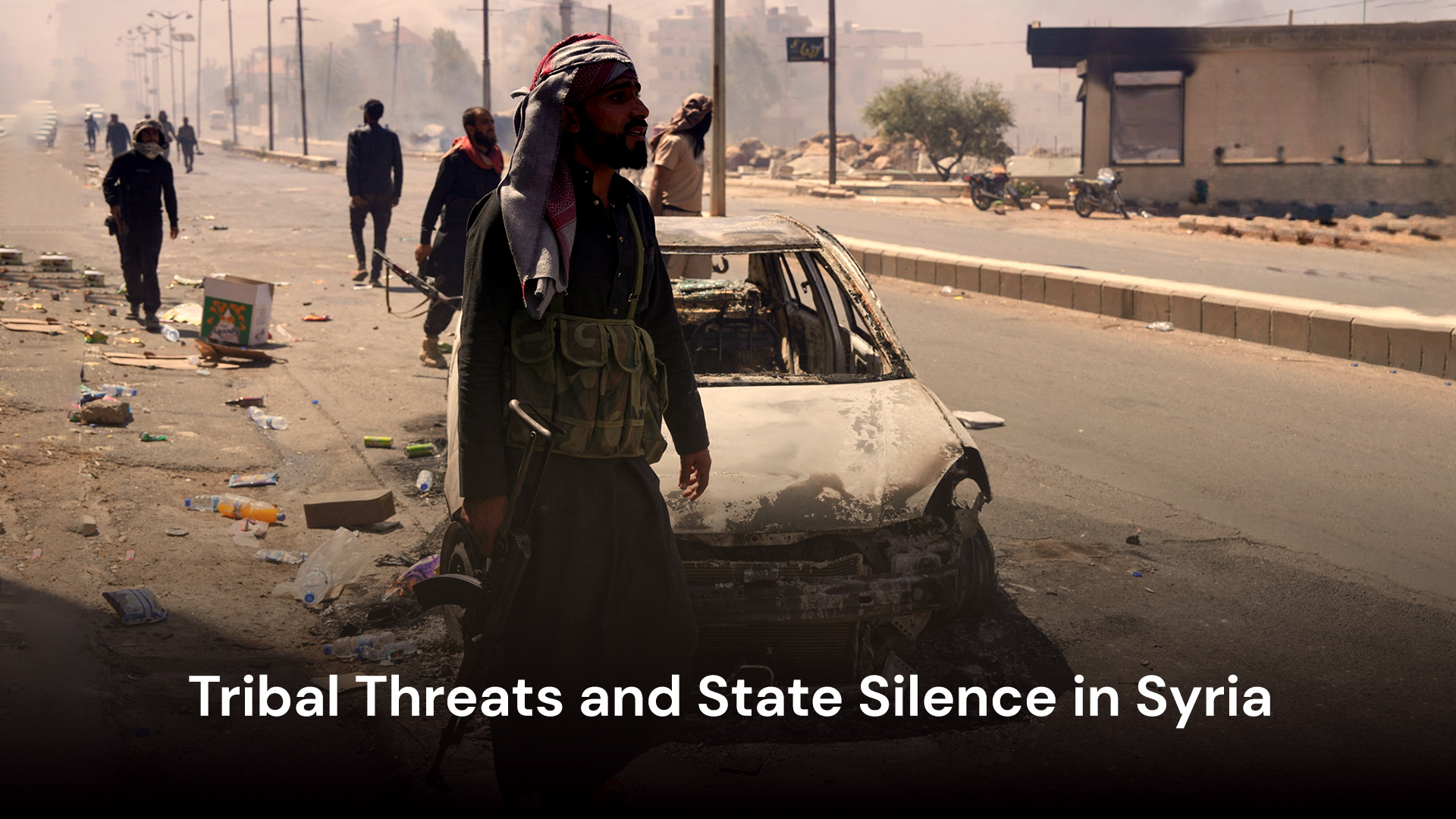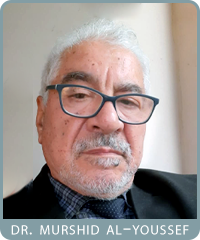Tribal Threats and State Silence in Syria: Collusion or Incompetence?
Dr. Murshid al-Youssef


A wave of public threats has recently emerged from certain rogue Sunni Arab tribes targeting various Syrian communities—particularly those integrated into the Autonomous Administration, most notably the Kurdish population in the north and east of the country. These threats are neither isolated nor spontaneous; they arise in well-defined contexts and follow a clear, hostile narrative. What raises serious concern is the conspicuous silence of the Syrian government, which has failed to take any meaningful action to defuse tensions or deter those issuing the threats.
This official inaction prompts pressing questions: Is it a sign of complicity from elements within the state? Or is it a troubling indicator of the government’s incapacity to act? Either way, the silence allows destabilizing rhetoric to flourish, reviving the same ethno-nationalist discourse that has historically fueled conflict in Syria.
Since the onset of the Syrian crisis in 2011, some tribes have positioned themselves as armed actors or as supporters of certain factions, often driven by sectarian or self-serving motives. In recent years, however, segments of these tribal entities have emerged as informal power brokers, adopting exclusionary rhetoric against key segments of Syria’s social fabric—particularly the Kurdish community. Cloaked in the language of “national unity” or “preserving sovereignty,” their discourse is, in reality, aimed at reasserting dominance and perpetuating subjugation within Syria’s geography.
The Syrian government’s passive stance in the face of these developments cannot be explained solely by institutional weakness or competing security priorities. More often than not, its position seems disturbingly close to deliberate collusion—echoing similar patterns observed during the recent crisis in Suwayda. When inflammatory tribal speeches are repeatedly voiced at public events, broadcast in the media, and circulated on social media without any official condemnation, legal action, or security response, such silence amounts to tacit political cover for these actors. Alternatively, it could signal a broader strategy by which the government seeks to pressure the Autonomous Administration and the Syrian Democratic Forces (SDF) through local social proxies.
Relying on tribal structures as alternative or parallel power centers is not only short-sighted but strategically unsound. These groups operate not on national or civic principles, but on narrow loyalties—clan, tribal, or personal. This makes them ripe for manipulation by external actors, as has been seen in other conflict zones such as Iraq, Libya, and Sudan. Worse still, granting them a free hand to intimidate or attack other communities deepens the social divide and lays the groundwork for long-term sectarian strife that will be difficult to repair.
The Kurds and other components of Syria’s northeast are not adversaries—they are partners. The Kurdish community, alongside Syriac, Assyrian, Arab progressive, and other groups in North and East Syria, does not seek secession or the fragmentation of the Syrian state, as extremists claim. Rather, they demand recognition as equal stakeholders in a truly democratic, decentralized system that ensures the rights of all Syrians. Targeting them through tribal militancy, driven by narrow agendas, is nothing less than an attempt to revive social and political authoritarianism—this time in sectarian or tribal form.
The continued silence surrounding tribal threats—especially against Kurdish citizens—is emblematic of a dual national crisis: a structural failure of the state, and a moral failure among elites who either justify, collude, or remain silent.
The Syrian government must make its position unequivocally clear: either it is a state for all Syrians, equally protective of all its citizens, or it must bear the consequences of its gradual disintegration and the erosion of its legitimacy. National unity cannot be built on fear, and a shared future cannot be charted through policies of indifference toward threats and discrimination.




